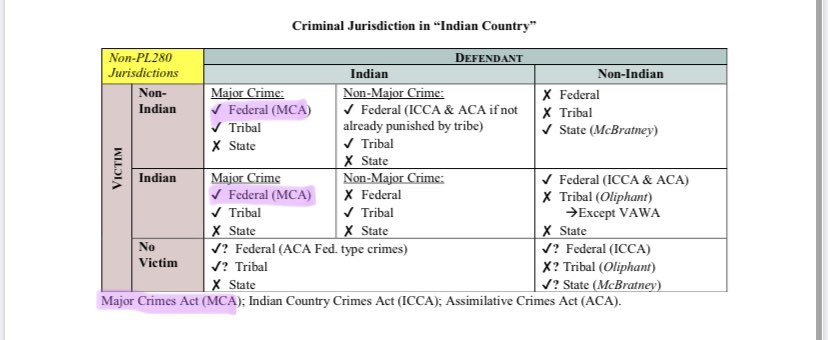Several different laws and cases have made the rules about which government prosecutes who. One of them is the Major Crimes Act, it governs serious crimes committed by Indians. McGirt challenged only the Major Crimes Act.
That is technically all for now.
1:Non-Indians consent
or
2: The conduct “threatens or has some direct effect on the political integrity, the economic security, or the health and welfare of the tribe.” <—interpreted narrowly
It is a change in a lot of rules that the three implicated state actors are equipped to figure out, and that most non Indian people won’t notice; but that matter a lot to the tribes and it’s members.



